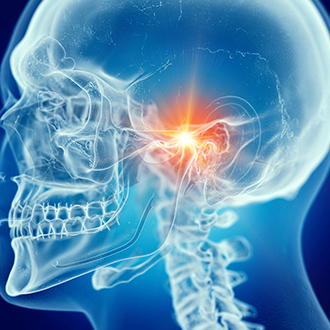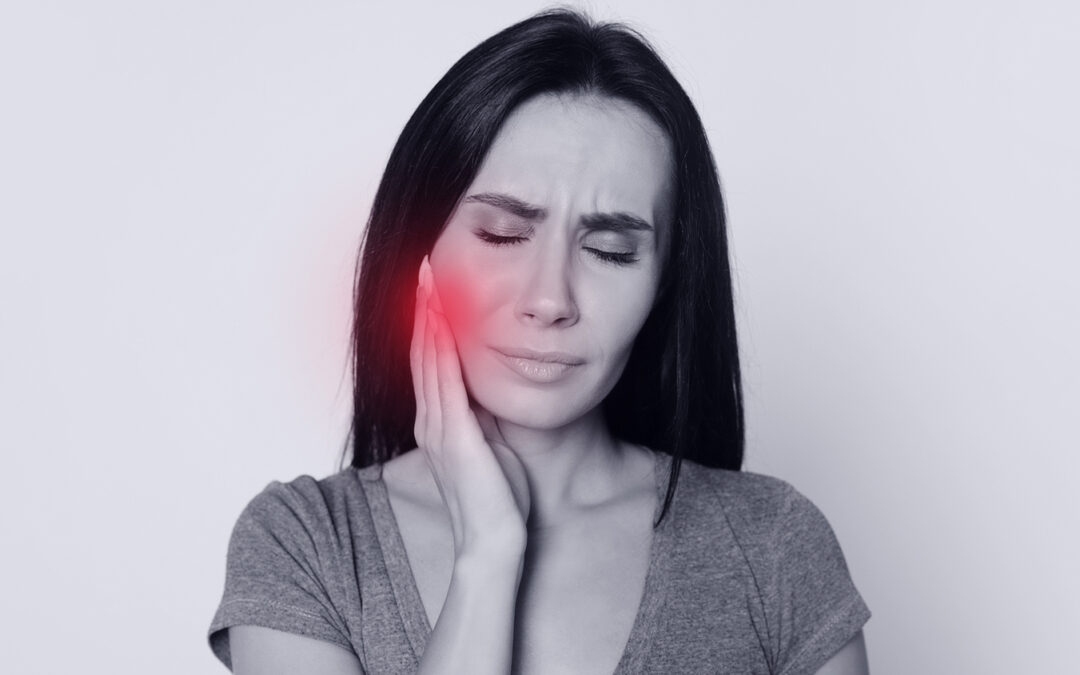
Your jawbone is connected to your skull with a pair of joints called temporomandibular joints, or TMJs. When you feel jaw pain, this is where it comes from.
If you are experiencing jaw pain, whether suddenly or increasing over time, it may be due to a dental reason or to medical reasons. We’ll cover some of the reasons for jaw pain below. We recommend booking an appointment with your dentist first if you have jaw pain, rather than your family doctor, as you will likely receive a recommendation to book an assessment with a dentist anyways.
Dental problems that lead to jaw pain
There are several dental-related issues that can cause jaw pain, including a toothache due to a cavity or abscess, cracked or crowded teeth that feel sensitive, gum disease, your wisdom teeth coming in and causing pressure, or routinely grinding your teeth/clenching your jaw. Your dentist will be able to treat many of these issues and provide the relief you need without having to go further.
TMJ disorders & other causes of jaw pain
If your dentist rules out dental issues as the cause of your jaw pain, it may be a TMJ disorder due to trauma (a blow to the jaw), arthritis or related conditions, a jaw that doesn’t line up quite right, or inflammation in the muscles surrounding your TMJs. If this is the case, your dentist or doctor may recommend anti-inflammatories and a physiotherapist who will help you release tension in the muscles and strengthen them with exercises.
There are other, more serious causes of jaw pain, like persistent sinus problems, cluster headaches, tumours, or cysts. Jaw pain may even signal a heart attack. This is why it’s important to see your dentist sooner than later, to find the cause of your jaw pain or rule out treatable dental causes before looking further!

